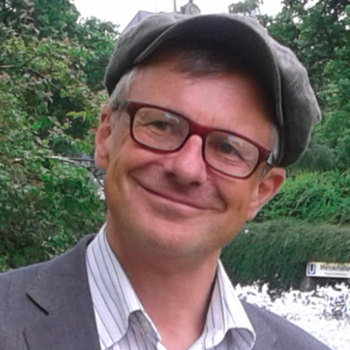Sergius Kodera (Universität Wien)
Senior Fellow in Research Area 1: "Competing Communities"
October – December 2021
Between Text, Image and Game: Renaissance Appropriations of the Arts of Memory: the case of Prometheus
The art of memory, a highly popular topic in the 16th century, was originally developed in the context of Greek and Roman rhetoric. It consists of imagining a spatial structure – for instance, a house with different rooms (loci) – and then furnishing these spaces with objects and people (imagines). In this art, it is crucial to visualize and memorize a mental structure, with its loci and imagines, in the greatest possible detail. To facilitate this formidable task, the masters of the art of memory frequently recommended that the images have a strong emotional nature (imagines agentes).
In this project, Sergius Kodera will concentrate on one particular mythical figure and its uses in the art of memory and adjacent practices of recollection: Prometheus. Known today primarily as the philanthropic Titian who stole fire from the Gods and for the terrible punishment he underwent at Zeus' command, Prometheus is a highly emotional imago agens.
Sergius Kodera will be taking his lead from Aeschylus' Prometheus bound, where Prometheus is also the God who taught men all forms of knowledge – as well as the art of memory – and indeed the heroic figure bestowed mankind with civilization. The project will highlight the various ways in which Prometheus became appropriated as an imago agens during the Renaissance, with its potential as a highly ambivalent rhetorical locus for the human condition, its pitfalls, and its potentials. With this aim, Kodera’s project will explore Giordano Bruno's texts on the art of memory and their relationship to dialectics, books of emblems, and Francis Bacons Sapientia veterum, a text which the project will conceptualize as a deliberately idiosyncratic gallery of memory images in the service of Bacon’s endeavor to transform the production of human knowledge.
Since he received his doctorate in 1994, Sergius Kodera has been teaching Early Modern and Renaissance Philosophy at the Department of Philosophy at the University of Vienna. He obtained his habilitation in 2004 and undertook fellowships in London (Warburg Institute), Vienna (IFK), and New York (Columbia). Kodera has published on and/or is a translator of Renaissance authors such as Marsilio Ficino, Machiavelli, Leone Ebreo, Girolamo Cardano, Giovan Battista della Porta, Giordano Bruno, and Francis Bacon. Currently he is working on a book-length study on Della Porta in English. His main fields of interest are the history of the body and sexuality, magic and media, and urban space in interdisciplinary perspectives.
